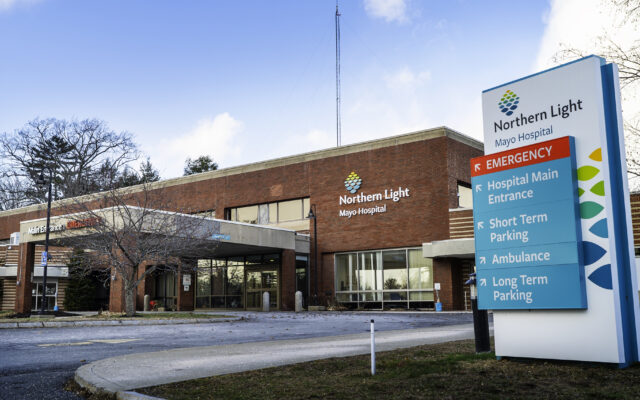
Lawmakers should change the pay law that’s hurting rural Maine
By Ryan Knapp
Maine’s rural communities are special places. From the mountains of Franklin County to the harbors of Waldo County, these are places built on hard work, community, and a deep sense of place. But hard work alone can’t treat cancer, set broken bones or counsel someone through a mental health crisis. For that, you need trained professionals, and right now, Maine’s laws are standing in the way of getting them to the people who need them most.
LD 898, “An Act to Support Rural Workforce Recruitment by Allowing Pay Differentials Based on Work Site Location and Employee Experience and Credentials Under the Maine Equal Pay Law,” is a modest but urgently needed fix for the health care challenges of our rural communities. It acknowledges a reality that anyone recruiting for a hospital in Farmington or Belfast already knows: It’s hard to get qualified professionals to come, and harder still to get them to stay.
Under current state law, employers are barred from offering different pay for the same job — no matter where it is or who is doing it — unless it fits neatly into a narrow set of exceptions. You can pay more for working the night shift, for staying a long time or for climbing up the merit ladder, but not for going the extra mile, literally or figuratively, to support our rural communities.
A family physician that has to provide more specialty care because the nearest specialist is over an hour’s drive away is paid the same salary as a colleague where those specialists may be down the hall. That highly qualified ENT who might have brought their skills to Waldo Hospital? They walked away, just like two orthopedists and an OB/GYN, because the compensation didn’t match the cost of living or the challenge of rural practice.
That challenge often includes having the bare minimum number of providers available to be on-call 24 hours in case of emergencies. This call burden can be too much to bear when shared between just two or three providers, especially if one of them leaves or takes time off.
These above examples aren’t hypotheticals. They’re real people, with real skills, who declined offers to move to our rural hospitals. And they’re not alone. The chief medical officers recruiting for MaineHealth Franklin and MaineHealth Stephens Hospitals are watching positions go unfilled for a year or more. Meanwhile, communities wait. Families wait. Illness doesn’t.
Let’s be clear: The principle of equal pay for equal work is a just one. It protects workers, especially women and minorities, from being shortchanged for doing the same job. But when that principle becomes rigid dogma, when it refuses to recognize the extra effort, the extra credentials or the extra hardship of rural service, it stops serving equity and starts undermining access.
Rural doctors and specialists aren’t asking for a windfall. They’re asking for recognition that moving to a small town hours from an airport or a large professional network comes at a personal and professional cost. They’re asking for the ability to support their families in towns where groceries might be more expensive, where childcare is harder to find and where they may be the only person in their specialty for 50 miles.
LD 898 doesn’t gut the equal pay law. It allows employers to factor in geography and credentials when setting pay. It gives hospitals a tool they need to hire the providers our communities deserve.
There is no cost to the state for passing this bill. It would only provide narrow exceptions to the existing pay equity law to allow geography and experience or credentials to be factored into the rate of pay employers can offer. It would allow hospitals to pay more to professionals to relocate in our rural communities.
Rural Mainers have a right to timely, quality health care. That right doesn’t mean much if a position stays empty for months on end because we’re too inflexible to offer what the market demands. Let’s not let a well-meaning law become a barrier to care. Let’s pass LD 898 and give our rural hospitals — and the people they serve — a fighting chance.
Knapp is an emergency medicine physician at MaineHealth Stephens Hospital in Norway and vice president of physician and advanced practice provider services for MaineHealth’s Mountain Region.